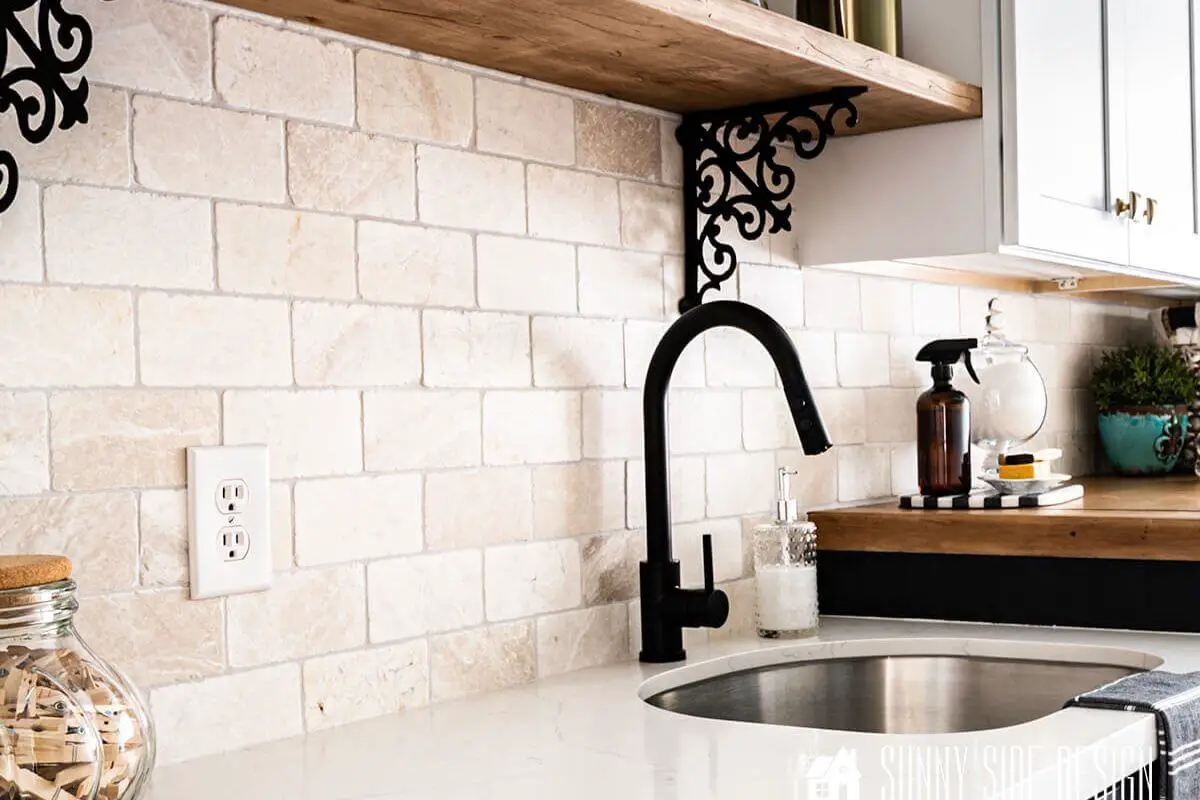Introduction
When it comes to kitchen design, the backsplash is a crucial element that not only adds visual appeal but also protects your walls from splatters and spills. Two popular choices for kitchen backsplashes are quartz and tile. Both options offer unique benefits, and choosing between them can significantly impact the overall look and cost of your kitchen renovation.
In this article, we will delve into the cost aspects of quartz backsplash vs. tile backsplash, giving you a clear understanding of which option best suits your budget and preferences.
Understanding Quartz Backsplash
What is Quartz?
Quartz is a natural mineral abundant in the Earth’s crust. As a backsplash material, it is engineered using a combination of natural quartz crystals, resins, and pigments. The result is an attractive and durable surface available in various colors and patterns.
Benefits of Quartz Backsplash
- Elegant Aesthetics: Quartz backsplashes offer a sophisticated and luxurious appearance, elevating the overall ambiance of your kitchen.
- Stain and Heat Resistant: The non-porous nature of quartz makes it highly resistant to stains, spills, and heat, ensuring easy cleaning and maintenance.
- Consistent Color: Unlike natural stones, quartz offers consistent color and pattern, allowing for more predictable design outcomes.
- Hygienic Surface: Its non-porous nature also makes it resistant to bacteria and mold, promoting a hygienic kitchen environment.

Drawbacks of Quartz Backsplash
- Higher Cost: Quartz tends to be more expensive than some tile options, making it a premium choice for those with a flexible budget.
- Professional Installation: Due to its weight and installation complexity, quartz backsplashes require professional installation.
Exploring Tile Backsplash
Types of Tile Backsplash
Tile backsplashes come in various materials such as ceramic, porcelain, glass, and natural stone, each offering distinct characteristics and appearances.
Advantages of Tile Backsplash
- Versatility in Design: Tiles provide endless design possibilities with numerous shapes, colors, and patterns, allowing you to create a personalized backsplash.
- Affordability: Compared to quartz, many tile options are more budget-friendly, making them an attractive choice for cost-conscious homeowners.
- DIY Installation: Some tile backsplashes are DIY-friendly, enabling homeowners to save on installation costs.
Disadvantages of Tile Backsplash
- Grout Maintenance: The grout between tiles requires regular cleaning and sealing to prevent staining and mold growth.
- Susceptible to Damage: While tiles are durable, they may chip or crack over time, especially in high-traffic kitchens.
Cost Comparison between Quartz Backsplash and Tile Backsplash
Initial Cost
Quartz backsplashes typically have a higher initial cost, considering the premium material and engineering processes involved. On the other hand, tile backsplash costs vary widely depending on the type of tile chosen.
Installation Cost
Since quartz is heavy and requires precise cutting, professional installation is recommended. Tile backsplash installation costs can vary depending on the complexity of the design and whether it’s done professionally or as a DIY project.
Maintenance Cost
Quartz backsplashes are virtually maintenance-free, while tile backsplashes may incur additional maintenance expenses due to grout cleaning and potential tile replacements.
Long-Term Durability Cost
While both materials are durable, quartz is more likely to maintain its appearance and condition over time, potentially reducing the need for replacements.
Resale Value
A kitchen with a quartz backsplash may attract more potential buyers and add value to your home, potentially increasing the resale price. However, tile backsplash designs that resonate with a broader audience can also positively impact resale value.
Factors Influencing the Cost
Material Quality
In both quartz and tile, the cost varies depending on the quality and brand. High-quality materials may have a higher price tag but often come with better performance and longevity.
Design Complexity
Elaborate designs, patterns, and customizations in both quartz and tile backsplashes can drive up the cost.
Labor Costs
Professional installation of either quartz or tile backsplash will involve labor costs, which can vary depending on your location and the complexity of the project.
Kitchen Size
The size of your kitchen will influence the amount of material needed, impacting the overall cost.
Making the Right Choice
Budget Considerations
If budget is a significant concern, tile backsplash may be the more practical choice due to its cost-effectiveness.
Aesthetic Appeal
For homeowners seeking a luxurious and consistent appearance, quartz backsplash may be the preferred option.
Maintenance Efforts
If you prefer a low-maintenance option that requires minimal care, quartz may be the best fit.
Resale Value
Consider the potential impact on your home’s resale value when deciding between quartz and tile backsplash.
Conclusion
Choosing between quartz and tile backsplash ultimately boils down to your personal preferences, budget, and long-term goals. Quartz offers elegance, durability, and low maintenance but comes at a higher cost. On the other hand, tile backsplashes provide versatility and affordability but may require more upkeep.
Before making a decision, weigh the pros and cons, and consider consulting with a professional kitchen designer for expert advice tailored to your unique needs.
FAQs
Are quartz backsplashes more durable than tile backsplashes?
Yes, quartz backsplashes are generally more durable and resistant to stains and heat.
Can I install a quartz backsplash over existing tile?
It is not recommended to install a quartz backsplash over existing tile due to weight and compatibility issues.
Does the cost of tile backsplash vary depending on the material?
Yes, the cost of tile backsplash varies based on the material, with ceramic being more affordable and natural stone being more expensive.
How long does it take to install a quartz backsplash?
The installation time depends on the complexity of the design and the expertise of the installer. Generally, it can take a few hours to a day.
Can I DIY my backsplash installation?
DIY installation is possible for some tile backsplashes, but it’s recommended to hire a professional for both quartz and complex tile designs.



